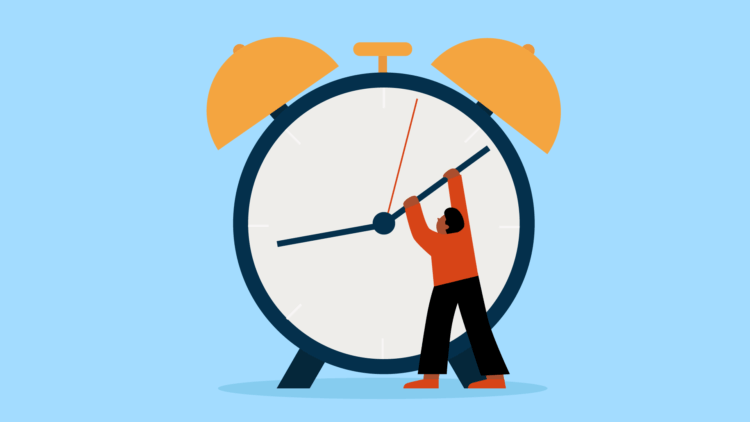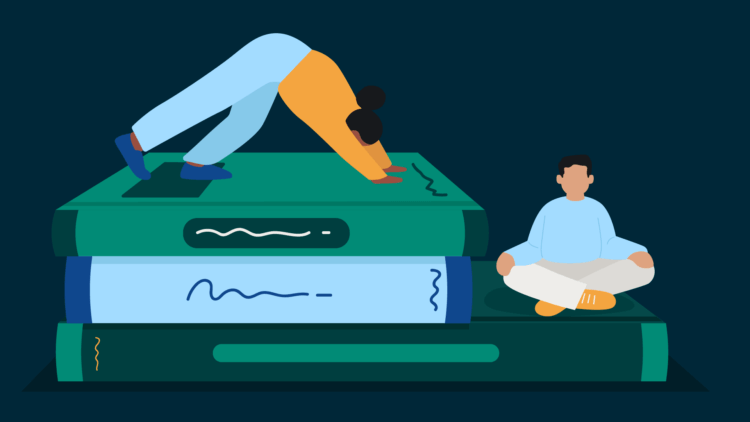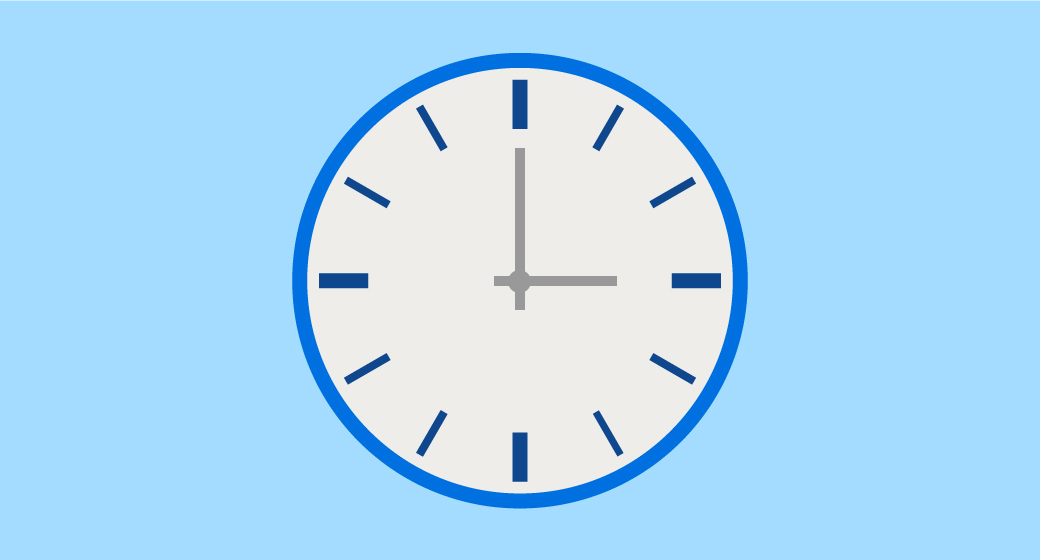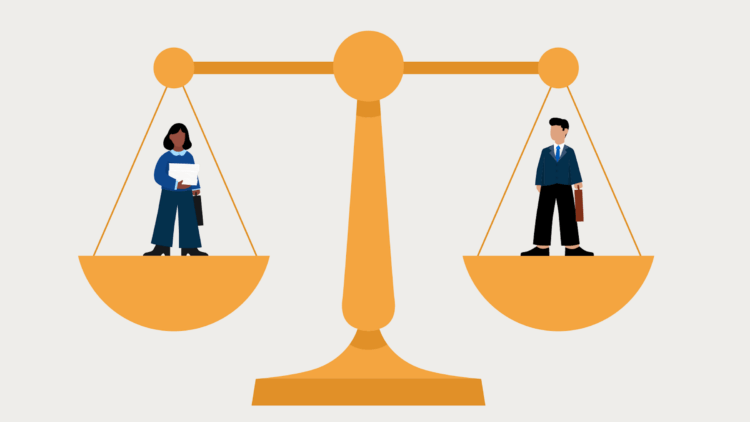Lawyer working hours are known for being long and grueling—but exactly how many hours do lawyers work? According to the U.S. Bureau of Labor Statistics, some lawyers put in well beyond the standard 40 hours each week, especially those in private practice and large firms.
Given the complexities of a lawyer’s career path, it’s not surprising that their hours are demanding. Each day, lawyers juggle numerous tasks—from meeting billable hour requirements and managing clients to preparing for cases and attending court sessions.
Yet, these super-sized workweeks can take a toll, both personally and professionally. They often lead to burnout, heightened stress, and can contribute to substance abuse and mental health issues. Add in the competitive nature of the industry, and it’s easy to see why many lawyers feel exhausted.
In this blog post, we’ll examine just how many hours lawyers work and delve into the reasons behind it. We’ll also explore the potential health consequences of consistent overwork for lawyers. Most importantly, we’ll discuss effective ways to manage and balance the working hours of a lawyer. (Hint: using legal technology can help. Book a personalized demo of Clio to see how).
How many hours a week does a lawyer work?

Most lawyers work full-time, and some regularly exceed the standard 40-hour workweek.
The size of their practice significantly impacts how many hours lawyers typically work each week. For example:
- Lawyers at small- and medium-sized firms work an average of 42-54 hours per week.
- Lawyers at large firms work an average of 66 hours per week.
Among lawyers, those at Big Law firms often work the most hours, with many commonly working 80-hour weeks, in large part because of billable hour quotas.
Do lawyers work 9 to 5?
What hours do lawyers work, if they’re working more than full-time? During the week, many attorneys work additional hours outside of the traditional 9-to-5 business day.
The 2022 Legal Trends Report provides deeper insights into lawyer working hours:
- 86% of lawyers work outside of the typical work day (beginning between 8 a.m. and 9 a.m. and ending between 5 p.m. and 6 p.m.).
- 56% of lawyers continue working after 5 p.m. and 28% work past 6 p.m.
- 11% of lawyers reported working after 10 p.m.
Do lawyers work on weekends?
Generally, yes. Lawyers often work on weekends to fulfill the demands of their clients. As professionals in the legal services industry, attorneys must often meet deadlines that don’t always align with traditional work schedules.
Understanding lawyer working hours
For most lawyers, it’s not just one (or two, or three) factors that drive long working hours. From heavy workloads and pressure from peers and clients to billable hour targets, practicing law demands that lawyers take on multiple time-consuming tasks and responsibilities.
Unfortunately, the mountain of work and expectations often can’t be surmounted in an eight-hour work day, or a 40-hour work week.
While not every lawyer faces the same challenges, here are some common reasons why lawyers work so many hours.
Billable hour requirements
When law firms have billable hour requirements, attorneys must work a minimum number of hours on billable client work. Combined with the hours spent on non-billable (but still essential) tasks like client intake and communication, it becomes difficult to fit everything into a standard workday.
The catch-up cycle
The majority of lawyers—86%, according to the 2022 Legal Trends Report—work outside or beyond regular business hours to catch up on tasks they didn’t complete during the day. Without more efficient systems, you may always find yourself “catching up.”
Deadlines
Many of the matters lawyers handle are time-sensitive. Meeting a deadline, filing documents on time, or being prepared for a hearing often requires lawyers to put in extra hours to get the job done.
Unpredictable hours
Similarly, scheduling challenges—whether due to court hearings or meetings—can often lead to long or unpredictable hours.
Client service
Clients come first, but being available to clients outside of regular business hours can impact overall lawyer working hours. According to the 2022 Legal Trends Report, 74% percent of lawyers make themselves available to communicate with clients on weekends, and 69% offer to communicate in the evenings.
Is being a lawyer stressful?
Being a lawyer can be stressful due to long hours, substantial workloads, tight deadlines, and the constant pressure to secure favorable outcomes for clients. This demanding environment can lead to burnout, mental health issues, and challenges in maintaining a healthy work-life balance.
Are long lawyer working hours bad for your health?
Reasons aside, consistently working overwhelming hours isn’t sustainable for most people. The pressures and exhaustion that come with prolonged overwork can impact lawyers’ careers and their health.
Some of the most common health issues fueled by grueling lawyer hours include:
- Lawyer burnout. Lawyer burnout is more than just being tired. As the Stress & Resilience Institute’s Paula Davis-Laack explains on Episode 34 of Clio’s Daily Matters podcast, burnout is “the manifestation of chronic workplace stress.”
Working excessive hours in a high-stress environment depletes lawyers’ energy levels and increases their susceptibility to burnout.
- Addiction and substance-use problems. Problematic alcohol-use disorders are more prevalent among attorneys compared to other professions. The American Bar Association reported that as many as one in five lawyers are problem drinkers—which is twice the national rate.
- Mental health issues. Lawyer anxiety, depression, and other mental health problems are widespread in the legal industry. According to research from the Hazelden Betty Ford Foundation, 28% of licensed, employed attorneys experience depression, and 19% report symptoms of anxiety. Moreover, a 2023 study found that lawyers are twice as likely as non-lawyers to contemplate suicide.
How to achieve work-life balance as a lawyer

Now, the positive news: It’s possible to balance the demands of lawyer working hours with wellness.
However, it takes effort.
Here are some effective strategies for enhancing your health and lessening the impact of the legal profession’s long working hours.
Take care of your health and wellness
Looking after yourself will help you better manage stress. Below are some ways to prioritize your wellness.
Eat well
Ever find yourself working so hard that you forget to eat—or regularly eating food that doesn’t nourish you? This isn’t doing any favors for your well-being. Instead, fuel yourself to support productivity during working hours by eating nutritious meals consistently and avoiding excessive caffeine and alcohol.
Stay physically active
Physical activity is an important factor when it comes to lawyer wellness and helping to manage anxiety. But don’t be mistaken—physical activity doesn’t have to be rigorous to have a significant impact. Even fitting in short walks during the day can go a long way toward improving your mood and overall well-being.
Prioritize downtime and time off
Rest is critical for keeping burnout at bay, and sleep deprivation negatively impacts our health. But it’s often the first thing that’s sacrificed when you’re working long hours. To mitigate this, prioritize downtime each evening and avoid screen use an hour or two before bed.
Set boundaries
Know your limits, articulate them, and stand by them. Setting boundaries can be challenging, but learning to say no can significantly improve your work-life balance. For more on the importance of setting boundaries for lawyers, listen to this episode of Daily Matters with Master Certified Coach Terry DeMeo.
Practice mindfulness
As attorney and author Jeena Cho explains on the Daily Matters podcast, mindfulness and meditation can be powerful tools for supporting mental wellness for lawyers. If you need help tapping into mindfulness, you can also use technology to help, with many apps available to help you manage stress and prevent burnout.
Pursue hobbies
Carve out time each week to pursue interests outside of work, whether it’s spending a few hours gardening, cooking, or engaging in other hobbies. Striking a balance between work and personal passions is essential for your overall well-being.
Strengthen social connections
When you’re hyper-focused on your career, it can be easy to let social connections slip through the cracks. However, these connections are essential for your overall health and well-being. It’s also beneficial to build a strong network within the legal profession, nurturing relationships with peers and mentors who can provide advice and support when needed.
Learn more about lawyer wellness and mental health from experts like Paula Davis-Laack, Founder and CEO of The Stress & Resilience Institute, and Jeena Cho, Mindfulness Educator at The Resilient Lawyer in an episode of the Daily Matters podcast.
Maintaining a successful legal career and personal life
There are also steps you can take to restore—or create—the balance in your work and life.
Seek work with meaning
Working long hours can be stressful. But if you’re doing work you care about and find meaningful, it can feel less taxing.
Delegate
Take a critical look at your daily tasks. Are there responsibilities that others could handle? Whether it’s assigning work to administrative staff, other attorneys, or outsourcing tasks, delegating responsibly can free up valuable time in your schedule.
Work smarter
You can also use technology to handle tedious tasks. This allows you to streamline and automate administrative and non-billable tasks, cutting down on your lawyer working hours while boosting productivity. According to a study from the American Bar Association, 82% of lawyers agree that technology makes it easier to balance work and family obligations.
Tracking time in real-time by using software like Clio Manage’s legal time and expense tracking software, for example, saves time at work by making your daily processes more efficient. Additionally, tools like Clio Payments can automate reminders to clients about overdue bills and make accepting payments a breeze.
For guidance on how to achieve this, watch this webinar on how to bill an extra eight hours every week.
Are you ready to shift the status quo at your firm? Discover how legal technology can boost lawyer satisfaction and effectiveness at work.
Make your own hours
If you can’t find a balance where you are, you might want to consider alternative ways to build your vision of work-life balance, such as starting your own law firm.
Final notes on balancing lawyer working hours
There are only so many hours in a day, and the working hours of a lawyer tend to take up most of them. While the number of hours can vary by law firm size and practice area, most lawyers work full-time, and some well beyond that.
The drive to work extra hours often comes from good intentions—wanting to provide exceptional client service and succeed in a competitive field. But those good intentions, combined with billable hour requirements and heavy caseloads, can make work unsustainable.
As a result, lawyers often face stress, lack of balance, and burnout. While drastically reducing hours might be unrealistic, the strategies we’ve highlighted can make a real difference. Using legal technologies to handle mundane tasks, for example, can go a long way in lightening your workload and improving your well-being.
Book a personalized demo to discover how Clio can help you cut down your administrative work hours and achieve a better work-life balance.
How many hours a week do lawyers work?
Lawyers tend to regularly work over 40 hours per week, with Clio’s 2022 Legal Trends Report finding full-time lawyers work outside of a typical work day. This varies based on multiple factors, including firm size, practice area, and geographic location.
Do lawyers work long hours?
Lawyers are known for working long and often grueling hours, with most lawyers working more than 40 hours a week. According to Clio’s 2022 Legal Client Trends Report, 86% of lawyers report working outside of the typical work day.
We published this blog post in May 2021. Last updated: .
Categorized in: Business











